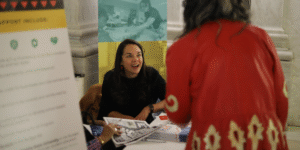
Five Things Stephanie Tyree Learned About Community Development and Leading a WV Non-Profit
Stephanie Tyree shares 5 powerful lessons from 13 years of leading WV’s community development movement and building lasting change across small towns.
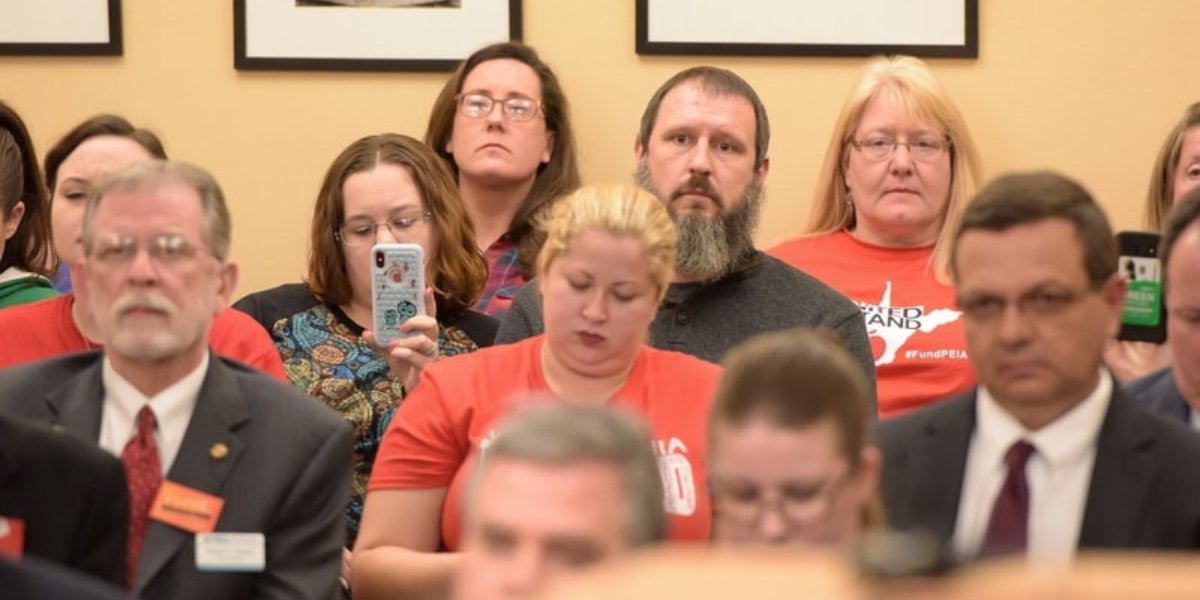
With HB 4145 passed on Tuesday, and schools back in session on Wednesday, there can be no doubt – this week has seen a huge victory for teachers and public workers in WV.
Their ability to organize this strike, to hold firm in the face of powerful opposition, and to demand that their voices be included in this policy discussion gave legislators no choice but to accept their participation in the legislative process. Teachers fought for and achieved one of the key changes that they were striking for.
One of the primary things that the teachers’ strike has demonstrated to me, other than the incredible organizing power of West Virginians, is the terrible lack of participation that is allowed and encouraged through our legislative process.
As citizens, we are openly offered very few, very specific ways in which to participate in the process and there is a very prescribed method by which we’re supposed to enact our participation. It’s not an unfair assessment to say that this approach is a part of what caused the systemic situation that led to the teachers’ strike in the first place.
Under normal circumstances, the legislative process would have relegated teachers to the sidelines, making them spectators in discussions about pay raises and PEIA, rather than active participants. That was, and still is, the expectation for the majority of the legislative process.
In order to have their concerns impact decision-making, in order to have their needs guide legislative action, every county in the state needed to close school. Crowds at the Capitol had to reach into the thousands and legislative leadership had to be backed into a political corner that they couldn’t get out of any other way.
While a major concern of teachers and public workers was addressed by the passage of HB 4145, there are other, systems level changes that teachers were calling for that have yet to be addressed.
Governor Justice’s deal with teachers promises to set up a task force with seats at the table for representatives of teachers’ interests. However, with almost a quarter of a million people on PEIA, this is not an improvement to the level of participation that teachers were offered before they went on strike.
Throughout the strike, a recurring theme in rally chants was the idea of remembering those who supported teachers’ needs and those who did not when it comes time to vote in November (primary elections are also coming up in May). This gets me thinking:
Voting is just one way that we citizens can participate in our legislative process.
What could be achieved if teachers and their supporters pushed for greater participation now, throughout the work of the PEIA task force, and leading up to November?
Perhaps this time, teachers’ concerns could impact a decision-making process from the beginning.
Interested in more articles like this one? Subscribe to The Hub’s Legislative Hubbub email, sent every Thursday during Session. Sign up now »
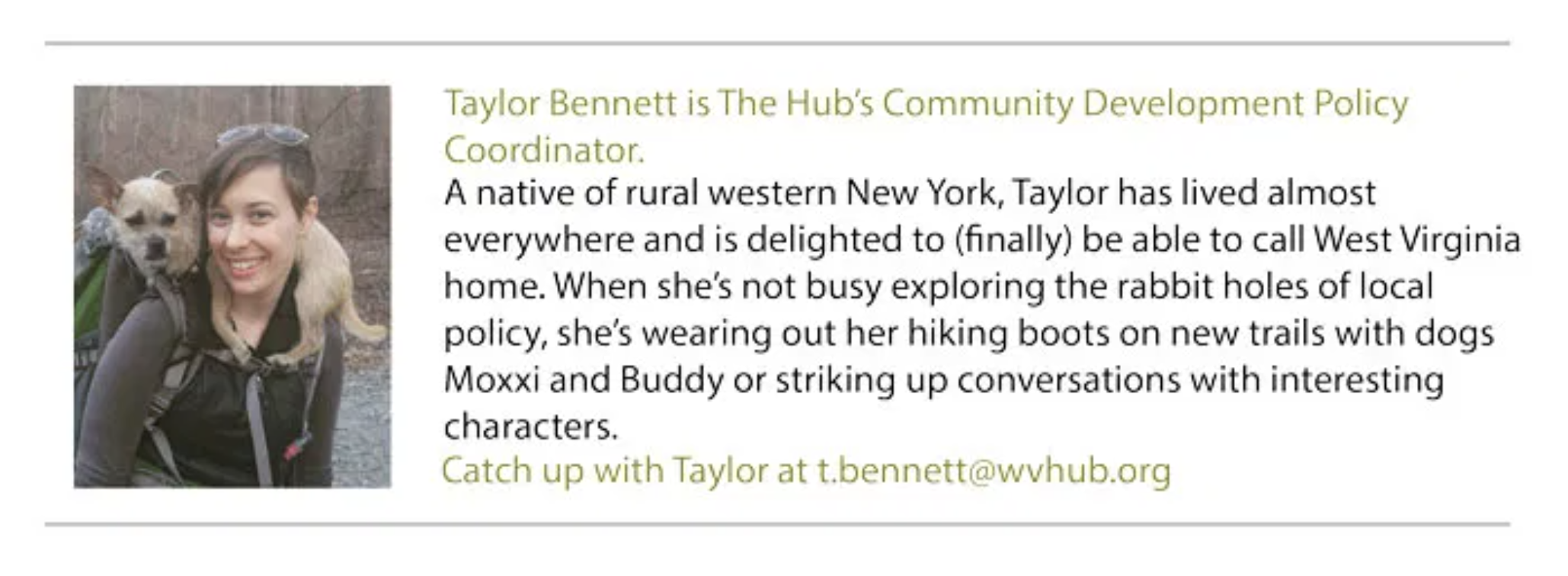

Stephanie Tyree shares 5 powerful lessons from 13 years of leading WV’s community development movement and building lasting change across small towns.
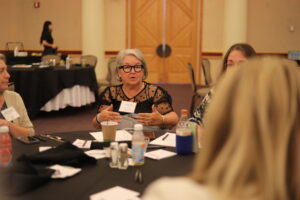
People often get involved with community development due to a desire to make their community better. This desire is rooted in bringing
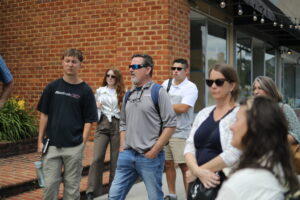
Community development is a group effort, and knowledge sharing is crucial in moving projects forward. Peter Buttler, a professor and extension specialist
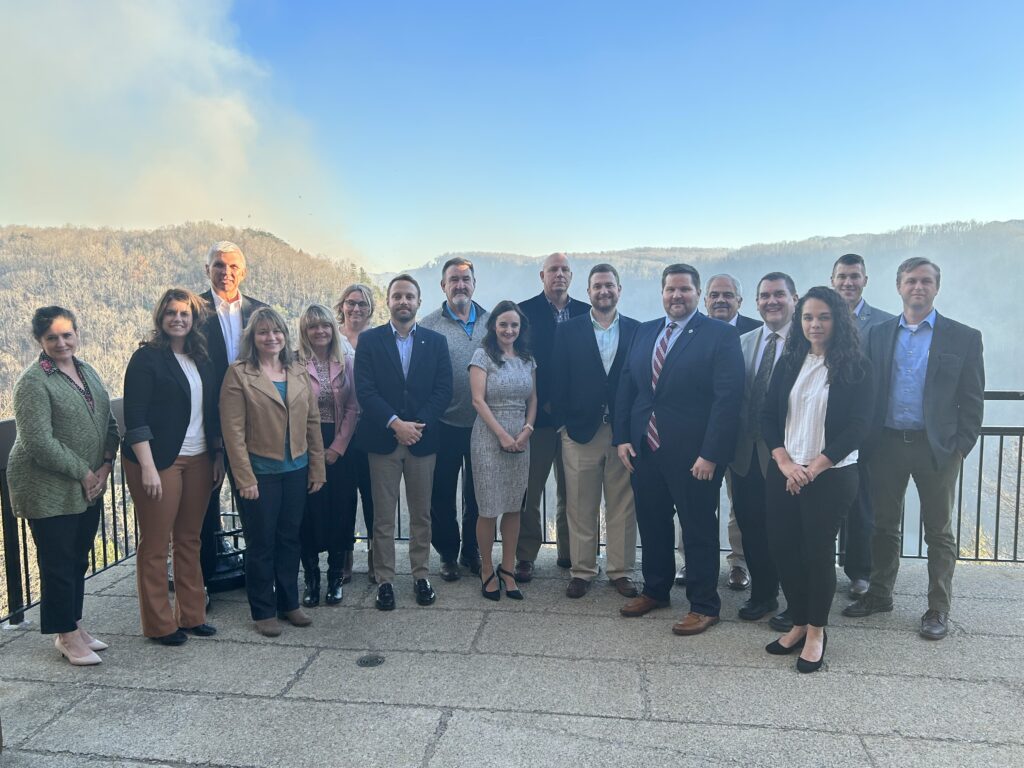
Our work is made possible thanks to incredible partnerships with other community development organizations across the state. From local economic development authorities (EDAs) to state level nonprofits working to uplift communities, all of our partners are crucial in making West Virginia the best it can possibly be by working together.
One partner that made our work truly profound this year is Coalfield Development. For years, Coalfield Development has worked to rebuild Appalachian communities by inspiring the courage to grow, activating the creativity to innovate, and cultivating communities of opportunity in central Appalachia.
We are proud to be part of Coalfield Development’s ACT Now Coalition, a broad network of organizations working hand-in-hand to uplift communities throughout Southern West Virginia. The ACT Now Coalition is infusing more than $63 million into programs to help communities using business development, building revitalization, and so much more.
The Hub is leading the Community and Business Resilience Initiative as part of the larger ACT Now Coalition to bring other partners with us to build up community and business resilience in the Coalition’s footprint.
“For decades, we’ve known the economy of southern West Virginia needs diversification. Some progress has been made on this goal, but not nearly enough,” Brandon Dennison, CEO of Coalfield Development, said about the ACT Now Coalition. “ACT Now constitutes a tangible opportunity to take a major leap forward in this generational challenge to become a vibrant, growing, diversified economy. In the wake of continued coal-job losses, nothing could be more important for our region.”
Our partnership with Coalfield Development is giving us a chance to take our work to new communities and to build upon our years of experience. Working alongside Coalfield Development in this large undertaking to bring $63.8 million to communities in Southern West Virginia is validation that the work happening to uplift West Virginia communities continues to grow.
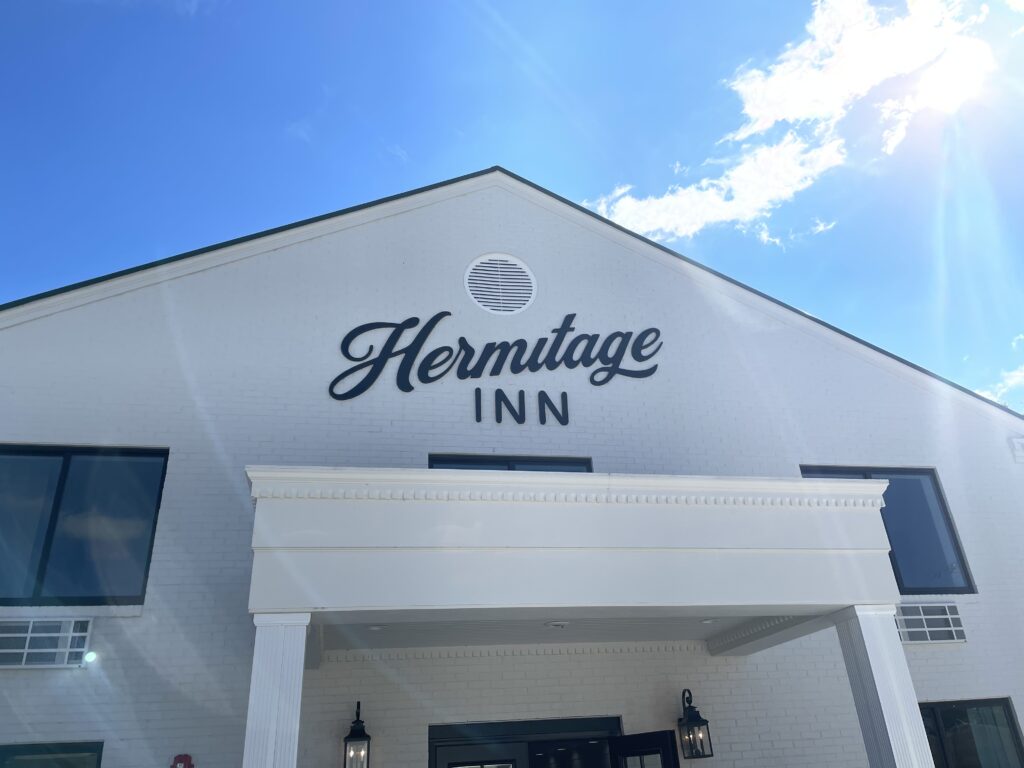
The Hub works alongside communities across West Virginia coaching community teams as they come together to make transformative changes in their towns. In 2022, one town stands out for its continued work and unwavering commitment to making its community a place where people want to live, work, play, and visit.
Petersburg, located in Grant County at the northernmost point of the Mon Forest, is filled with community members who want to make their town a destination. Not only have businesses opened, and stayed open, the town has transformed the way they present to the world through rebranding and outdoor recreational development.
As part of the HubCAP IV program, Petersburg utilized its technical assistance to push forward with projects to bring transformative change to its community. Part of the work Petersburg worked towards was creating plans to pave a hike and bike trail that runs along the Petersburg dike. The proposed trail will run approximately three miles along the Petersburg dike and will include multiple entrances for walkers and bikers. The group secured a $25,000 grant from Senator Hamilton, which was matched locally by the City of Petersburg, the County Commission, and the Board of Education, each adding an equal share to bring the total to $50,000.
This year, Petersburg witnessed a major upgrade to one of the town’s most iconic and historic structures: The Hermitage Inn. The hotel, which dates back to 1841, has been renovated and once again welcomes guests to stay the night and have a nice dinner in the restaurant.
The Hermitage Inn is the first project initiated and completed as part of the Downtown Appalachia: Revitalizing Recreational Economies (DARRE) program. Seeing the old hotel returned to its majesty has been an incredible development for Petersburg adding another jewel to the downtown area.
Seeing Hub communities come together to create transformative change thrills us. Community members are the subject matter experts on what their towns need. Our commitment to accompaniment and walking alongside communities as they do the hard work guides us in our work. Celebrating their victories with them gives us a moment to uplift those making the work happen.
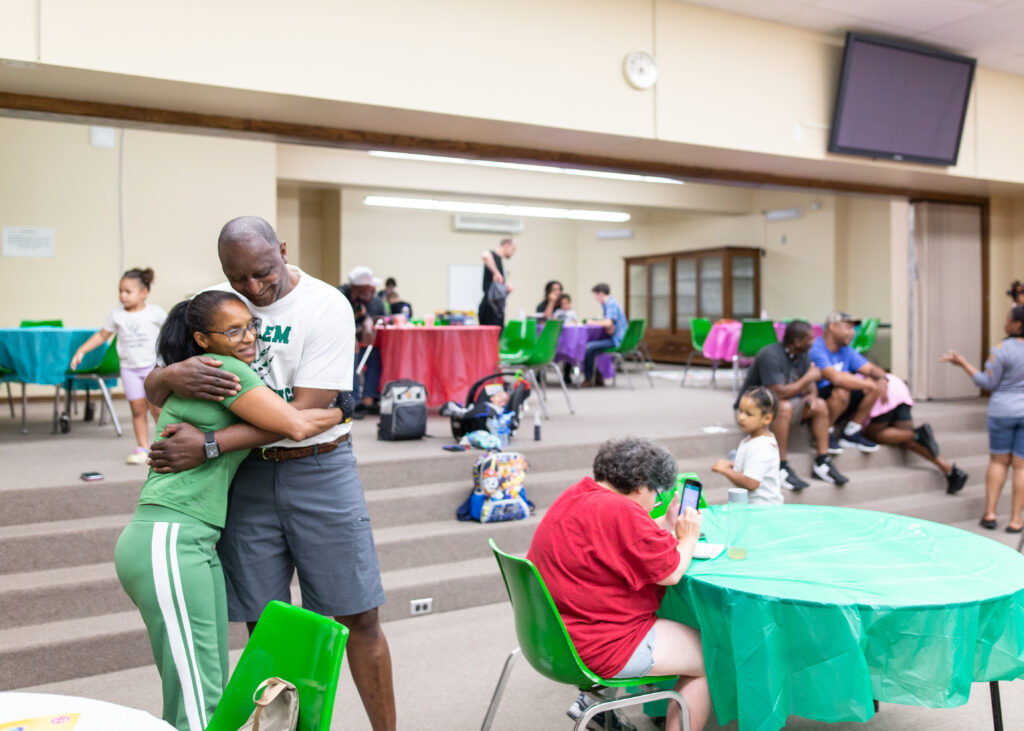
Since 2018, The Hub has been working diligently to bring Diversity, Equity, and Inclusion into our work. For years, the organization has been working internally to expand on one of our core values: “We believe diversity creates strength.”
We believe that now is a time when we must work from the ground up to commit to long-term efforts to build power through leadership development, programmatic strategies, and partnerships that commit to building power and advancing racial equity.
Looking back at our organizational history, we acknowledge that our work in rural communities with populations of less than 15,000 has not reached a diverse cross-section of people in West Virginia. Because of this, we began to ask, “Who isn’t here?” when examining our involvement in communities. The social unrest in 2020 led us to examine our role in white supremacy, ableism, classism, and gender discrimination, and the ways we have perpetuated unjust systems in our communities and across West Virginia.
Since 2020, our equity journey has included a staff racial equity learning series, making internal commitments to increasing our hiring and retainment of diverse staff including creating full-time Racial Equity Fellowship and VISTA positions, committing to increased coaching for rural communities of color across the state, and tackling the inherent challenges of advancing equity across the community development field within a highly rural, majority white state where Black and brown leadership has been historically marginalized and under-invested.
Our belief in the power of local people to see the value and the potential of their place, and of each other, is at the core of our belief in the potential we have to build power in West Virginia to advance racial equity, inclusion, and accessibility while disrupting systems that have historically excluded some communities.
We are committed to engaging in conversations to uplift communities and leaders of color to move from talk to action on why race matters in West Virginia as we work to disrupt these systems. We will support investment in Black-led organizations and rural Black leadership. And we are committed to driving public and private investments into these spaces, both organizational and geographic.
A core team led by Unleash Tygart, Inc participated in Opportunity Appalachia, receiving technical assistance to support a community development project located in an Opportunity Zone.
Core teams led by Thundercloud, Inc. and the City of Huntington participated in Opportunity Appalachia, receiving technical assistance to support community development projects located in Opportunity Zones.
A core team led by Crawford Holdings, LLC participated in Opportunity Appalachia, receiving technical assistance to support a community development project located in an Opportunity Zone.
Residents participated in round 4 of The Hub’s capstone Communities of Achievement program with a focus on building local recreational economies.
Residents participated in round 4 of The Hub’s capstone Communities of Achievement program with a focus on building local recreational economies.
Residents participated in round 4 of The Hub’s capstone Communities of Achievement program with a focus on building local recreational economies.
Residents participated in round 4 of The Hub’s capstone Communities of Achievement program with a focus on building local recreational economies.
Residents participated in round 4 of The Hub’s capstone Communities of Achievement program with a focus on building local recreational economies.
A core team led by Woodlands Development Group also participated in Opportunity Appalachia, receiving technical assistance to support a community development project located in an Opportunity Zone.
Residents participated in round 4 of The Hub’s capstone Communities of Achievement program with a focus on building local recreational economies. Read their community case study.
Residents participated in the Blueprint Communities* program to engage their neighbors and co-create strategic plans for their future.
Residents participated in the Blueprint Communities* program to engage their neighbors and co-create strategic plans for their future. Read their community case study.
Residents participated in the Blueprint Communities* program to engage their neighbors and co-create strategic plans for their future. Watch their community documentary.
Residents participated in the Blueprint Communities* program to engage their neighbors and co-create strategic plans for their future. Read their community case study.
Residents participated in the Blueprint Communities* program to engage their neighbors and co-create strategic plans for their future.
Residents participated in the Blueprint Communities* program to engage their neighbors and co-create strategic plans for their future.
Residents participated in the Cultivate WV program to kickstart community and economy building. Read their community case study.
Residents participated in the Cultivate WV program to kickstart community and economy building. Read their community case study.
It has been a year of abundant opportunities and partnerships across the state, and a year that has pushed all of us to work harder, faster, and smarter – together.
At The Hub, we say that “the work works when you put in the work.” This means that our approach to community-based development, and individual leadership development, really does transform local communities, especially when we all work together for the same goal, and stay committed to working together for the long haul.
In 2023, we continued to be amazed at the local leadership, drive and innovation we saw in communities throughout the state that are building locally-driven development from the ground up. Our network of community leaders, partners and opportunities keeps growing and shows no signs of slowing in 2024!
We extend our deepest gratitude to everyone for being part of the larger Hub community as we reflect on this year’s deep impact in West Virginia communities through our work. We are thrilled to have champions who believe in our mission that every community in West Virginia can achieve economic growth when they are supported with the tools and training they need to lead and spark positive change.
We believe strongly in the fact that putting in the work yourself to improve your neighborhood, your town, and our state is where true transformational change happens. With strategic partners and thought leaders like you in the work with us, we continue to be able to walk alongside community teams as they do the work to uplift their communities.
Thank you to all of the community teams and leaders who are brave enough to keep showing up every day, and putting in thousands of hours of volunteer time to support your communities and the entire state. Your determination in the face of difficult work and far-off successes is something to applaud yourself for – and to celebrate.
Whether you’re volunteering on the ground in your community, sharing our stories of hope with your friends and neighbors, or attending a virtual event with The Hub, your participation in our work is what keeps it going. Thank you for all your work and support this past year, and we are excited to continue in the work with you in 2024!
In Continued Accompaniment,